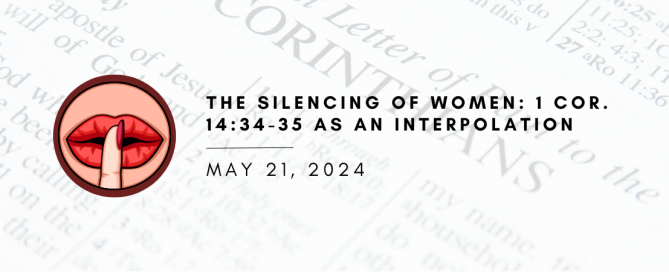Is Paul’s Second Letter to the Corinthians Actually TWO Letters?
How many of the early Christian writings consist of scissors-and-paste jobs, where later editors cut up earlier writings and stitched them together into one continuous work, so that what we have now are not the originals but only the final edited version? Are there books like that, for example, in the New Testament? In my last two posts I discussed how the early Christian writing called the Didache is that kind of thing, with three documents artificially combined into the 16-chapter book we now have. And what about in the New Testament? The first thing to stress is that the cut-and-paste approach to “editing” a book is not quite the same as what we find more commonly, for example among the Gospels. When Matthew “used” the Gospel of Mark, he took over many of its stories; in some instances he rearranged their order, changed their wording, added material to what he found, took away material, and so on. That’s not what we’re talking about now. Now we’re talking about an author literally cutting up a [...]


